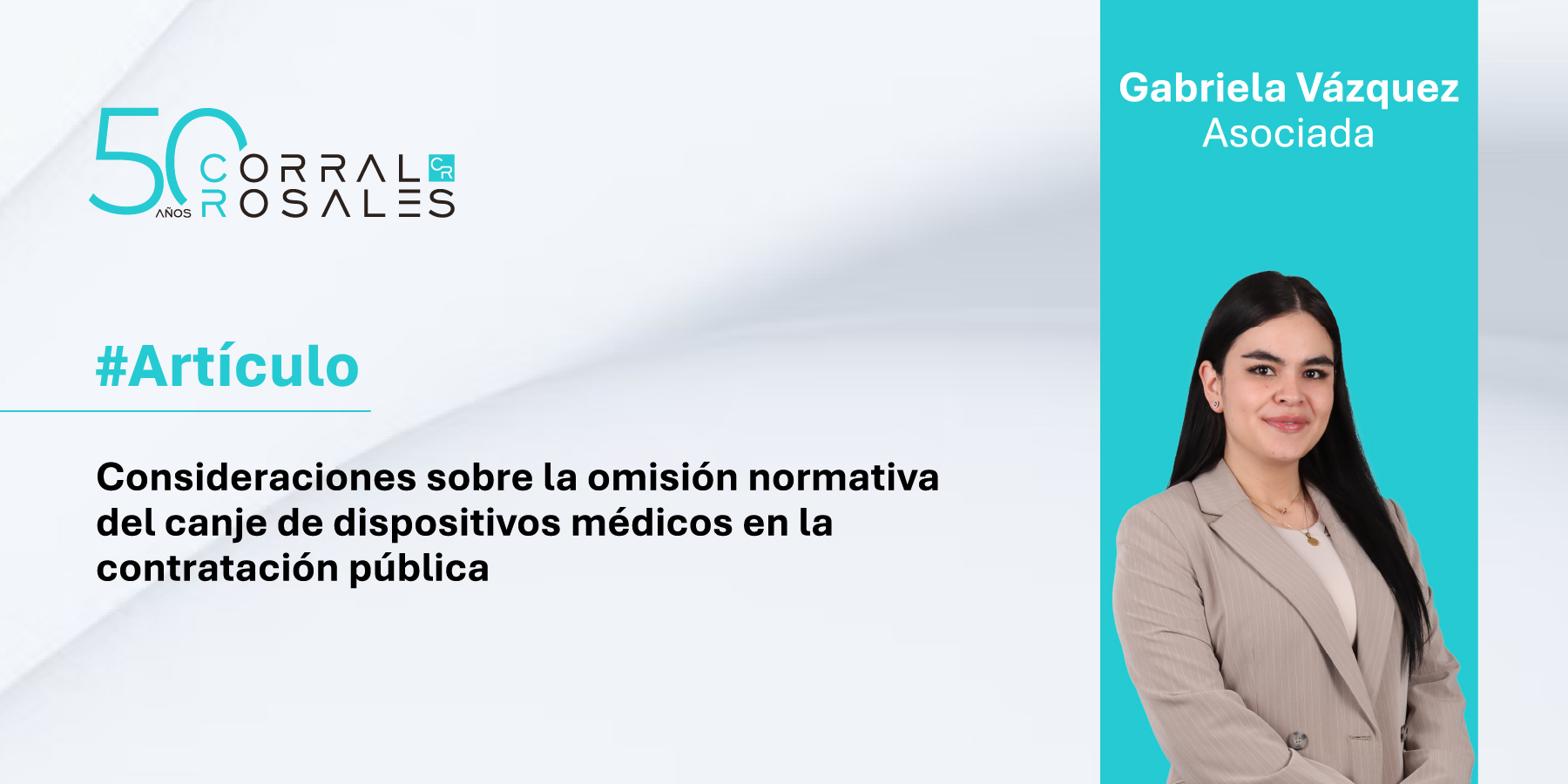The Exchange of Medicines is a Mechanism Provided for in Ecuadorian Regulations That Authorizes Institutions Within the National Health System to Require Their Suppliers to Replace Medicines That Are Close to Expiring With Others of the Same Technical Specifications but With a Longer Shelf Life (“Exchange”).
This mechanism is regulated exclusively for products defined as: (i) general medicines, (ii) biological medicines, and (iii) medicine kits that include medical devices (hereinafter collectively referred to as “Medicines”). However, it is not regulated for medical devices, which are items or apparatuses designed to treat diseases or support physiological functions in the human body, without acting through pharmacological means.
There are no express or implied rules that require the exchange of medical devices, which creates uncertainty regarding the applicability of the exchange mechanism to these products when they are close to expiration. Additionally, if such a situation arises, there is no clear guidance on how to carry out the exchange.
Article 175 of the Organic Health Law and Ministerial Agreement No. 00015 – 2019 require suppliers to exchange Medicines, even if the procurement process documentation does not expressly include such an obligation. However, neither that regulation nor any other legal framework governs the exchange of medical devices. This regulatory gap generates doubts among suppliers, who are, in principle, not obligated to exchange such products.
In practice, contracting entities include this requirement during various stages of the public procurement process. This scenario can become particularly burdensome when the obligation does not specify limits in terms of volume, frequency, or cause. Due to the vague wording of the respective clauses, suppliers may even be considered non-compliant if they are unable to fulfill them.
To mitigate these risks, suppliers should ensure that any contractual exchange provision is aligned with Ministerial Agreement No. 00015 – 2019, or includes some of its limitations related to quantity, periodicity, or causality, as these are reasonable for the contractor and allow for the anticipation of potential financial impacts.
In addition to the points mentioned above, and to strengthen risk prevention during the pre-contractual stage, it is advisable for suppliers to take the following measures:
a) Verify whether the exchange obligation applies exclusively to medicines and does not extend to medical devices;
b) Ask questions during the inquiry and clarification phase to define the scope of the exchange obligation clearly; and
c) Analyze the historical consumption of the contracting entity through its needs assessment report, in order to anticipate the turnover of the requested product, as low turnover combined with high supply volumes could result in multiple exchange requests.
If such measures are not adopted, experience shows that suppliers may face exchange requests for up to 100% of the medical devices sold.
Rafael Serrano
Partner at CorralRosales
rserrano@corralrosales.com
Juan Martín Chavez
Associate at CorralRosales
jchavez@corralrosales.com

